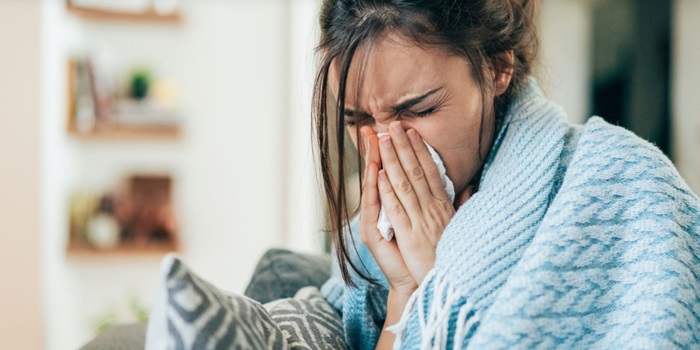Breathing in clean, fresh air is important for good health and wellbeing. Yet, around the world, this is far from reality.[i] Indian regions, for instance, occupied six of the top 10 spots for the most polluted cities worldwide in 2022.[ii] A report by Air Quality Life Index also found that high levels of pollution or particles in the air (like smoke, dust, and more) can reduce an average person’s life span in India by 5.3 years, compared to what they could have had if the air quality met the World Health Organization’s guidelines.[iii] In areas with higher concentrations of certain air pollutants, cases of respiratory infections like influenza (or the flu) are most likely observed, too.[iv]
Air pollution causes environmental health issues across seasons, from dust during the summer to smoke and fog in the winter[v], and it’s important to take it seriously.[vi] With health experts voicing their concerns on the links between poor air quality and rising respiratory issues, it’s important to act now. Fortunately, there are a few steps people can take. Dr. Jejoe Karankumar, Medical Affairs Director, Abbott India commented, “Helping people stay healthy at every stage of life is important. Air pollution and respiratory problems, like flu, can come in the way of this. It’s important to raise awareness about the steps people can take to protect themselves against infections like flu, especially at a time when its cases are rising. Preventive care is important, and it’s vital for more people, especially those at risk, to get their yearly flu vaccination for greater protection.”
Dr. Mohan J, MD (Respiratory Medicine), Consultant Pulmonologist & Specialist in Sleep medicine, Bengaluru, said, “Poor air quality can greatly affect someone’s health – and I have seen an approximate 40% rise in patients, affected by smog and air pollution in Bangalore. Many people are experiencing symptoms like breathlessness and cough – and there’s been a roughly 30% increase in reported cases of influenza-like illnesses over the last 3 months. Polluted air can also make someone feel worse when they have the flu. It’s important for people to protect themselves. They can do this by taking preventive measures like masking up when outdoors or staying indoors when air pollution is high, adopting good hygiene practices like washing one’s face and hands after being outside, and by getting the flu vaccine yearly to avoid infection.”
Poor air quality may even make people with conditions like chronic obstructive pulmonary disease more likely to develop viral infections like the flu.[vii] It can also cause symptoms like shortness of breath, coughing, wheezing, and chest pain.[viii] This is largely because breathing in air pollutants – like gases from vehicles, pollution from burning fuels like coal and oil, and more – can harm respiratory systems and irritate airways.[ix] The effect of environmental pollution is also seen globally: in the United States, an increase of just one unit on the air quality index was suggested to prompt over 4,000 additional hospitalizations for flu every year.[x]
Flu affects people of all ages – particularly children under five years of age, pregnant women, older adults (65 years of age and older), and people with underlying health conditions.[xi] Children are more sensitive to adverse effects of pollutants and viral infections than adults, and studies have shown links between air pollution and a greater risk of upper and lower respiratory infections, particularly flu.[xii] Parents must take extra care to protect their children, starting with immunization.
Pregnant women may also become vulnerable to infections like the flu because of air pollution.[xiii] This affects them disproportionately. Reducing the pregnant mother’s exposure to air pollution can lower her risk of being affected by an infection and also help safeguard her future child’s health better.
It’s important to practice good hygiene, whether with handwashing or using a face mask whenever appropriate. By making healthier lifestyle choices, people can also boost their immunity and support their lung health. This includes exercising regularly. However, during peak pollution periods, specially post Diwali, one should try indoor exercises to minimize exposure to air pollution. Wearing a mask when outdoor is always a good practice to follow. Most importantly, one should see a doctor immediately in case of symptoms like fever, cold or cough.


